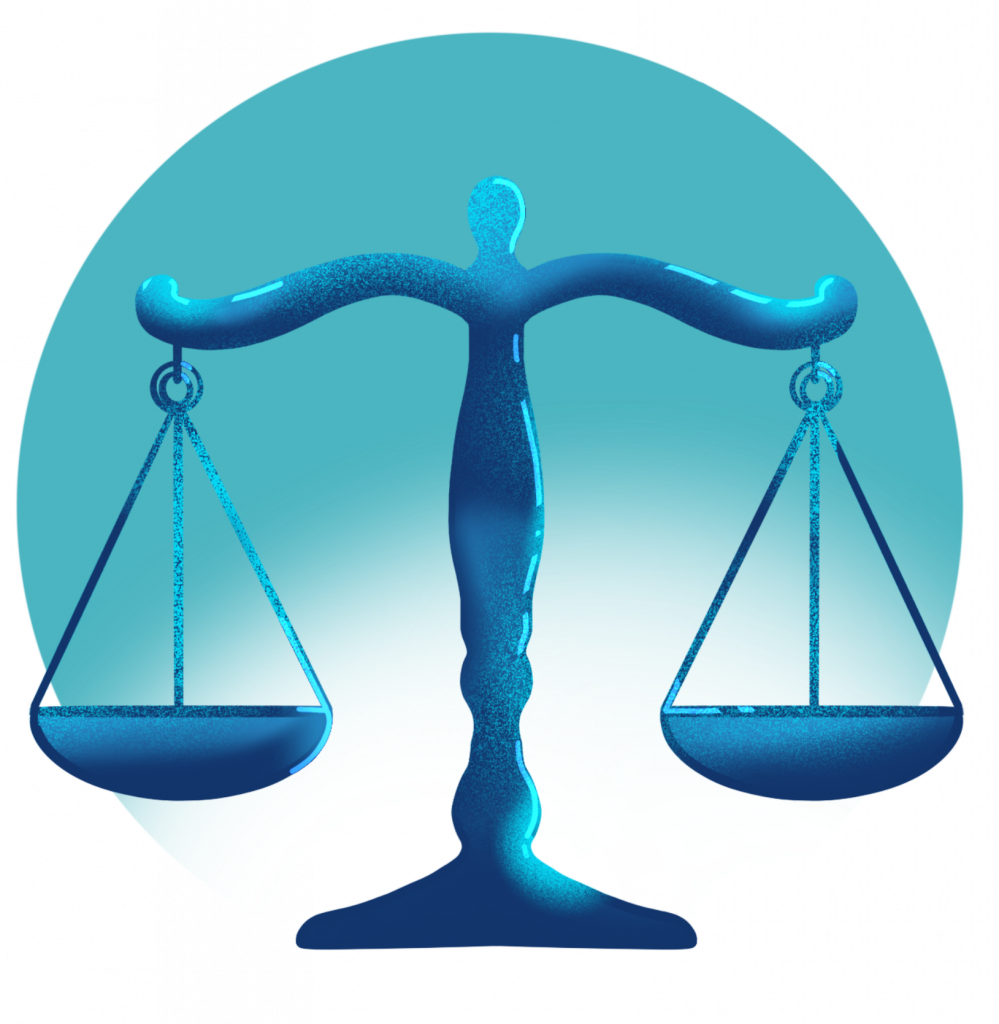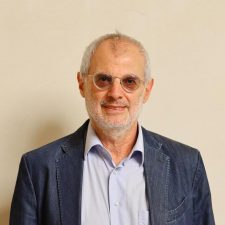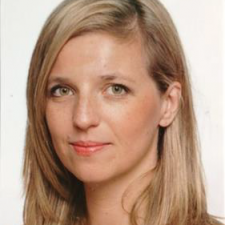The TRust, Independence, Impartiality and Accountability of judges safeguarding the rule of Law under the EU Charter (TRIIAL) project is a DG Justice supported project that provides training activities and tools for judges, lawyers, prosecutors, and other legal professionals in areas of salient importance for the application of the EU Charter of Fundamental Rights (CFR):

Trust

Independence

Impartiality

Accountability
It will run from 1 February 2023 until 31 July 2025. It will offer 12 transnational workshops for legal practitioners, the calendar will soon be published. The topics of the transnational workshop will be the following:
1. Enforcing the Rule of Law through Judicial Interaction Techniques
Programme2. Freedom of Expression and Association of Judges – a Cross-Border Judicial Dialogue organised in hybrid mode (in person and online) by the University of Ljubljana on 13–14 March 2024
Judges enjoy freedom of expression and association as any other citizen. However, when exercising these fundamental rights, they have to be mindful of the limitations the legal system has traditionally imposed to safeguard important competing interests: judicial independence, impartiality and public trust in the judiciary. Striking a proper balance is an extremely demanding task. In the last decade, two major societal developments – the rise of social networks and the rule of law crisis – have even further increased the complexity of the topic of this workshop.
Social networks have fundamentally changed our daily lives. Judges are no exception. Their use of social media can be regarded as a welcomed novelty for the democratic society, yet it poses a series of challenges: the appropriate content of communication, especially from the perspective of the requirement of impartiality, the blurred lines between private and public communication, the consequences of liking, retweeting and other means of limited communication. As a result, guidelines and standards on the use of social media by judges are growing and evolving at an unprecedented pace.
The second development is that several Member States are witnessing an unprecedented decline in the rule of law. Polish and Hungarian judicial “reforms” led to a structural breakdown, which no longer makes it possible to talk about independence and impartiality of their judiciaries (e.g. C-791/19, § 64). While other Member States endure for the moment, they are not immune to the constitutional backsliding. Judges’ expression and association have proved to be an important antidote against attempts to undermine the rule of law.
These developments have triggered a response from the CJEU and the ECtHR. The workshop will therefore address a topic, which is currently extremely important and will remain highly relevant in the future. The Workshop will strive to equip the participants with legal knowledge on the scope and content of freedom of expression and association of judges as well as on procedural guarantees and avenues for its protection, ultimately empowering them to adequately address the manifold challenges of their daily work and their professional vocation.
3. Cross-border training workshop: Mutual Trust and Judicial Independence in the EAW framework by University of Pompeu Fabra on 21-22 March 2024
4. Freedom of Expression and Association of Prosecutors – a Cross-Border Judicial Dialogue organised in hybrid mode (in person and online) by INPRIS on 12-13 April 2024
However, prosecutors do not enjoy the same level of independence as judges, although they have recently begun to organise themselves and take a more active part in public debate. Often, they are disciplined or repressed for becoming active and speaking out.
The main themes of the seminar will therefore be a practical analysis of European case law on the freedom of expression of prosecutors and the presentation of models for the functioning of prosecutors’ associations operating in the EU. Speakers representing different EU Member States and prosecution models will provide key recommendations and insights.
The seminar is part of the TRIIAL 2 project, which aims to disseminate knowledge of the Charter of Fundamental Rights of the European Union among legal practitioners, in particular judges and prosecutors.
5. Are National Higher Courts Securing Fundamental Rights? Litigation Techniques towards Implementation of EU Acquis on RoL and Fundamental Rights organise in hybrid mode (in person and online) by CIDP in May 2024
6. Disciplinary Proceedings and Judicial Ethics organised in hybrid mode (in person and online) by the Scuola Superiore della Magistratura on 10/11 June 2024
In this respect, disciplinary matters represent the minimum ethical standards that can be expected of any magistrate and which determine, in the event of violation, the application of a sanction. Starting from the international and European (CoE and EU) framework and the relevant jurisprudence of the European Court of Human Rights and the Court of Justice of the European Union, the course aims to deepen the knowledge and understanding of professional tools and to develop the skills, based on practical examples, to deal with ethical dilemmas in the exercise of professional functions, also taking into account the disciplinary rules imposed to deal with the violation of the minimum ethical standard.
7. Fundamental Rights and the Use of the Preliminary Reference Procedure organised in hybrid mode (in person and online) by ELTE in October 2024
The call for applications will open up in spring 2024
This workshop aims to provide guidance to judges on how to use the preliminary reference procedure to ensure a high level of human rights protection, in particular, to enforce the EU Charter and the common values of the EU enshrined in Article 2 TEU with the help of judicial dialogue between domestic and EU courts.
Also, the workshop seeks to reveal the dynamics of the CJEU’s jurisprudence in preliminary ruling cases, especially regarding the developments in the admissibility criteria, to equip judges with the skill of drafting a successful request for a preliminary ruling. It also addresses how courts and legal practitioners can work together under Article 267 TFEU procedure to defend human rights effectively.
From the perspective of domestic courts, the preliminary reference procedure is also a form of judicial empowerment in relation to other state actors. Is it an adequate tool for judges to defend judicial independence or to address systemic problems of the rule of law? Furthermore, what is the impact of the CJEU’s approach set out in Getin Noble Bank, which has determined different standards for judicial independence as an admissibility criterion under Article 267 TFEU and as a concept stemming from Article 19(1) TEU and Article 47 of the Charter? Within the framework of the workshop, these questions will also be discussed.
8. Judicial Dialogue and Freedom of Expression of Lawyers organised online by UNBR on 7-8 November 2024
The call for applications will be opened in spring 2024.
9. Rule of Law and Predictive Justice organised in hybrid mode (in person and online) by CJC/EUI in December 2024
The call for applications will opened in summer 2024
On the other hand, not less important, the deployment of AI based technologies has also started to be embedded in the activities of courts, including case management and facilitation of decision-making process, up until the creation of online courts. Although the pandemics has fast-forwarded this process, several are the questions that still emerge as regards the independence, accountability and impartiality of such systems. The training workshop will address both dimensions taking into account the most recent developments of the caselaw in the EU Member States.
10. Mutual Trust, Judicial Independence and Judicial Cooperation in Asylum, online mode, organised by the University of Florence in January 2025
The call for applications is open. Please check here for more information and conditions for application
First, the workshop will explore the duty of consistent interpretation of EU secondary law with CFR standards with reference to, inter alia, the notion of safe third countries (e.g. the pending case C-134/23).
Second, it will examine the duty to disapply national provisions contrary to EU law by paying special attention to the right to effective judicial protection (Article 47 CFR). In this regard, EU asylum law will be explored as a paradigmatic example of the spill-over effect of the CJEU rule of law jurisprudence in other fields (case C-924/19 PPU, FMS and case C-556/17, Torubarov).
Finally, attention will be paid to the last resort solution of suspending horizontal judicial cooperation in the Dublin system, in light of the NS (C-411/10) and LM (C-216/18 PPU) case-law. In particular, the cases concerning indirect refoulement currently pending before the Court (joined cases C-228/21, C-254/21, C-297/21, C-315/21 and C-328/21) offer a new opportunity to reflect on the structural tension between mutual trust, the rule of law, and the protection of individuals’ fundamental rights in the field of EU asylum law.
11. The Rule of Law Requirements of Judicial Self-Government: the Role of Judicial Councils and Court Presidents in hybrid mode organise by the University of Masaryk, Czech Republic on 3-4 February 2025
The call for applications will open in summer 2024
Partly due to the constitutional and rule of law backsliding experienced in some EU countries, European supranational organisations attempted to clarify the requirements on the institutional setup of judicial councils. The workshop will discuss these requirements, update the participants on the most novel case-law at supranational European and domestic level, and juxtapose it against empirical experience with judicial councils in individual countries.
The role of court presidents is much less discussed, although both supranational courts already engaged with questions of their independence and accountability regarding their function in judicial governance. The workshop will engage with specific roles of chief justices and lower court presidents and discuss the duality of their role: vis-à-vis external actors (such as politicians, business or media) and vis-à-vis the judiciary (and the rank-and-file judges).
12. The Role of Lawyers in the Promotion of Judicial Independence, Mutual Trust and Rule of Law – Litigation Strategies before Judicial and Quasi-Judicial Bodies ogranised in hybrid mode (in person and online) by University of Gdansk in February 2024
The call for applications will open in spring 2024
The training aims to reconstruct legal mobilization on the supranational level by introducing into the supranational discourse a neglected phenomenon of legal complex. Given law’s salience in European integration it is indeed striking how absent the legal complex has been from the supranational parlance. The legal complex stands for a configuration of legal occupations (professionals and academics alike) which enable, draft, litigate, implement, oppose, critique and ally with judges and courts speaking the language of First Principles. The Court of Justice (“the Court”) has always understood its function under art. 19 TEU as actively promoting the goals of the Treaties to attain “an ever – closer union among peoples of Europe” (Art. 1 TEU). While the Court has been a focal point for legal mobilization and coordination, legal mobilization alone does not explain how the Court has avoided dangers of irrelevance and marginalization. A theory with solid conceptual underpinnings is necessary to show how disperse legal mobilization is harnessed, disciplined, and explained to the public. The Court needs allies from within the legal professions. The supranational legal complex can bring together and build networks of support for the Court and national judges that enables and energizes the defense of supranational legality anchored in the First Principles. As such the operation of the supranational legal complex aims at consolidating the case law and defending the Court’s autonomy and power. This would speak to the crucial social function played by the legal complex: to embed the supranational legality and the legitimacy of the Court in the domestic legal orders and to make it part of the domestic legal practice.
While something is finally happening (“one thousand robes march” in defense of judicial independence), this incipient movement still lacks critical feedback and orientations that would help avoid the impression of one – day wonder. One voice is needed to organize and channel the internal voices around the common cause and the shared core of the constitutional essentials. That would in turn aim to provide a necessary inspiration to develop European fidelity of the legal profession to the core and to focalize their efforts in defending it.
The TRIIAL 2 Project is a continuation of the successfully concluded TRIIAL project and aims at assisting legal practitioners in the response to rule of law challenges. It addresses the priority of supporting judicial trainings of justice professionals with the aim of building public trust in the profession of judges to sustain their position.
The following specific objectives are at the heart of the project:
1) raising awareness about the impact that judicial interaction techniques have in the implementation of the fundamental rights’ legal framework, particularly CFR;
2) improving the ability of legal practitioners to promote rule of law through the application of the EU fundamental legal framework to their everyday work;
3) fostering national cross-sectoral cooperation in the implementation of EU fundamental rights legal framework in the promotion of the rule of law;
4) building trust, legitimacy, dialogue, accountability of the judiciary.
The national and European caselaw selected within the framework of the project can be accessed at the CJC Database
Recordings
Training ‘Enforcing the Rule of Law through Judicial Interaction Techniques’
‘Mutual Trust and Judicial Independence in the EAW Framework’
Freedom of Expression and Association of Judges: Current and Future Issues
- Madalina Moraru | Member of TRIIAL 2 | EUI, Centre for Judicial Cooperation | University of Bologna
SLAPPing Judges into Silence
- Paulina Milewska | EUI, Department of law
Freedom of Expression and Association of the Judge from the Perspective of the Right to Fair Trial
- Sietske Dijkstra | Judge at Court House of Groningen
All Quiet in the Judiciary: Low Voice of Hungarian Judges and the Role of European Courts
- Ágnes Kovács | Member of TRIIAL 2 | Eötvös Loránd University (ELTE)
The Role of Judicial Associations in Preventing Rule of Law Decay in Romania: Informal Communication and Strategic Use of Preliminary References
- Raluca Bercea | Member of TRIIAL 2 | National Association of the Romanian Bars (UNBR) | Faculty of Law, University of Timișoara
Judges Amid the Rule of Law Crisis: A Political Scientist’s Perspective
- Jernej Pikalo | Department for Political Science of the Faculty of Social Sciences, University of Ljubljana
Judges’ Presence on Twitter in Times of Constitutional Breakdown in Poland: “What we’ve got here is failure to communicate”
- Jaroslaw Gwizdak | former Polish judge and court president | member of TRIIAL 2, INPRIS
To post or not to post: Personal Experience with the Use of Social Media
- Kees Sterk | Senior Judge at judge at Rechtbank Zeeland West-Brabant and Maastricht University | former President of the European Network of the Councils for Judiciary (ENCJ)
A Perspective of a Judge from a Common Law Jurisdiction
- Judith Gleeson | Senior Judge at the Upper Tribunal
Mouthpiece of the Judiciary: Experience from the Netherlands
- Barbara den Uijl | Head of PR of the Dutch Council for the Judiciary
Shaping the Narrative of Judicial Association’s Social Media and Building Sustainable and Effective Communication
Karolina Rokita | Judge at the District court in Przemyśl | Member of Communication and Social Media of Iustitia (Association of Polish judges)
Speaking on Behalf of the Judiciary
Vesna Bergant Rakočević | Judge at the Higher Court of Ljubljana | President of the Slovenian Association of Judges
People

Halmai, Gabor
TRIIAL 2 Project Coordinator & Part time Professor at the EUI Department of Law
Tel. [+39] 055 4686 401 (Int. 3401)
Office: Villa Salviati - Castle, SACA206
Fields of interest: Comparative constitutional law / International human rights law / Globalization of constitutionalism / Constitutional-making in democratic transitions / Comparative judicial review / Transitional constitutionalism and transitional justice / Religious rights / Freedom of expression
Administrative Assistant: Anna Christine Di Biase

Achler, Marta
Research associate in TRIIAL 2 project
Fields of interest: international law and international human rights law; constitutional law; judicial independence and democratization

Casarosa, Federica
Part-time Professor
Tel. [+39] 055 4685 534 (Int. 2534)
Office: Convento, SD023
Fields of interest:
- New media law and regulation
- Child protection in the media sector

Moraru, Madalina
Part-time Assistant Professor
Fields of interest:
- The law and policies of EU external relations
- Fundamental rights
- Judicial cooperation and treatment of asylum seekers and refugees
- Public international and comparative law

Airaghi, Elisabetta
Project Manager
Tel. [+39] 055 4685 599
Office: Villa Malafrasca, VM009
Partners
- European University Institute (EUI) – leading partner of the project;
- Eötvös Loránd University (ELTE)
Zoltan Fleck; - Institute for Law and Society (INPRIS)
Jaroslaw Gwizdak; - Italian School for the Magistracy (SSM)
Gianluca Grasso; - Lisbon Centre for Research in Public Law (CIDP)
Tiago Fidalgo de Freitas; - National Association of the Romanian Bars (UNBR)
Raluca Bercea; - University of Florence (UNIFI)
Nicole Lazzerini; - University of Gdansk (UG)
Tomasz Koncewicz; - University of Ljubjana (UL)
Mohor Fajdiga
Sasa Zagorc; - University of Masaryk (MUNI)
David Kosar - University of Pompeu Fabra (UPF)
Aida Torres Perez
Joan Soales Mullor
Advisory Board
- Petros Alikakos, European Judicial Training Network
- Markus Thoma, European Association of Administrative Judges
- Paulie Girerd, Ecole National de Magistrature
- Mariarosaria Guglielmi, MEDEL
- Dragoş Călin, Asociaţia Forumul Judecătorilor din România
- Laura Carlson, European Women Lawyers Association
Network of experts
- Karolina Podstawa; University of Maastricht (UM)
- Barbara Warwas, The Hague University of Applied Sciences (THUAS)

